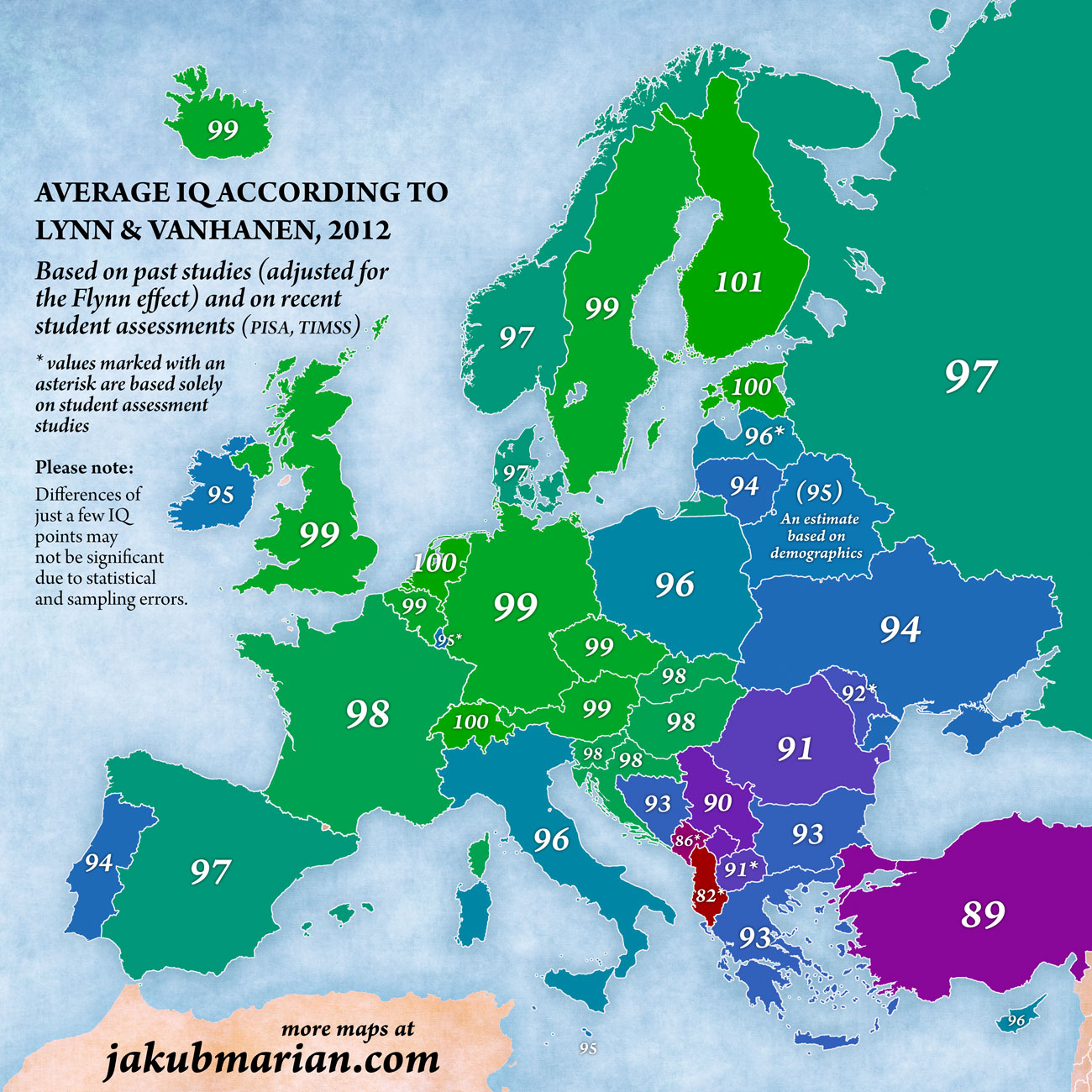When we speak about IQ, it is important to understand that the common idea that IQ measures your “innate” or “genetic” intelligence is a complete misconception. A trained brain is able to solve problems much faster and more accurately than an untrained brain, so the quality of education greatly influences IQ scores (I write more about that topic here). Hence,
This may seem counterintuitive, as the quality and accessibility of education has been improving for many decades, but the average in developed countries still lingers around 100. This is because the value of IQ is not absolute; it tells you how well you do compared to the rest of the population:
For example, a person with IQ 82 (the value of Albania in the map below), would have had an above-average IQ by 1950s standards. This indicates that Albania’s education system is lagging behind most other European countries, not that Albanians are in any way inherently less intelligent than other Europeans.
Data by Lynn & Vanhanen
The following map is based on a book entitled Intelligence: A Unifying Construct for the Social Sciences by Lynn and Vanhanen (2012). The authors used not only IQ measurements available for each country, but also, to a great extent, various standardized student assessments (TIMSS, PISA) and known correlations between IQ and results of such studies.
Please note that, because of inevitable statistical and sampling errors, differences of just a few IQ points may not be statistically significant.

As explained at the beginning of this article, IQ is typically normalized in such a way that the average IQ of the whole population is 100. Lynn and Vanhanen use a different approach and calculate IQ scores relative to the value for the United Kingdom, which they set to 100 (before applying adjustments based on student assessments).
This makes the average IQ of most highly developed nations close to 100, which looks quite natural from the European and North American perspective. Had the literal definition been used (where the overall average, including participants from third-world countries, is set to 100), many European countries would score over 110.
 Tip: See my list of the
Tip: See my list of the  Most
Most